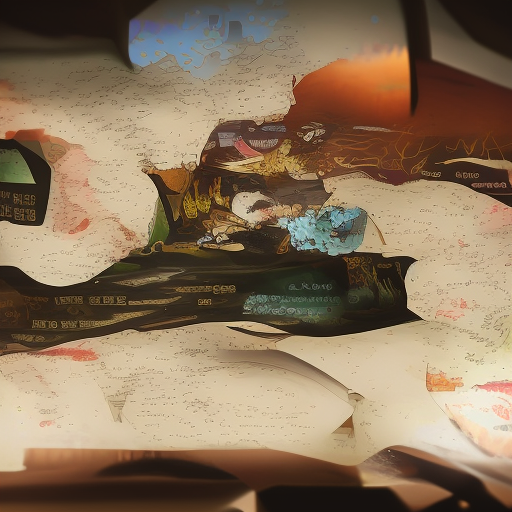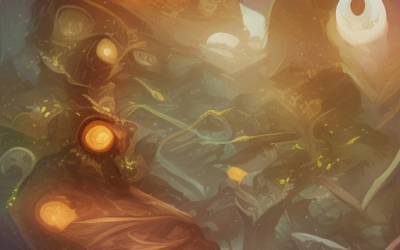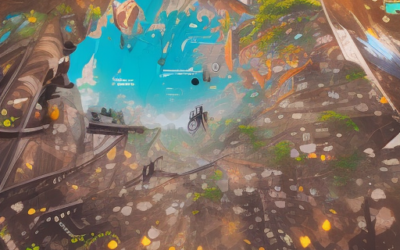Unleash Your Imagination: Exploring the World of Creative Writing

1. What is Creative Writing?
Creative writing is a type of writing that involves using imagination and creativity to produce written work. It can take many forms, including fiction, poetry, drama, and nonfiction. Creative writing allows writers to express themselves in unique ways and explore different perspectives on the world around them. Whether you’re interested in exploring new ideas or simply looking for a way to express yourself, creative writing can be a powerful tool for self-discovery and personal growth.

2. The Benefits of Creative Writing
Creative writing has many benefits, both for individuals and society as a whole. Here are some of the advantages of engaging in creative writing activities:
1. Improved Communication Skills: When you write, you must express your thoughts and ideas clearly and concisely. This helps to improve your communication skills, which can benefit you in all areas of life.
2. Emotional Expression: Creative writing allows you to explore and express your emotions in a safe and healthy way. By putting your feelings into words, you can better understand and process them.
3. Stress Relief: Writing can be a great stress reliever. It allows you to focus on something else for a while, taking your mind off of problems and worries.
4. Improved Memory: Engaging in creative writing activities can help to improve memory and cognitive function. Writing requires concentration and focus, which can help to keep your brain sharp.
5. Increased Self-Awareness: Through creative writing, you can gain insight into your own thoughts, feelings, and experiences. This increased self-awareness can help you to better understand yourself and others.
6. Creativity Boost: Creative writing exercises your creative muscles, helping to boost your overall creativity. This can benefit you in all areas of life, from work to hobbies.
7. Personal Growth: Engaging in creative writing can help you to develop as a person. It allows you to explore new ideas and perspectives, and can help you to become more confident and self-assured.

3. How to Get Started in Creative Writing
If you’re looking to unleash your imagination and explore the world of creative writing, there are a few things you can do to get started. Here are some tips to help you on your journey:
1. Read widely: Reading is one of the best ways to develop your writing skills. Read books from different genres and styles, pay attention to how authors use language and structure their stories.
2. Practice regularly: Like any skill, writing takes practice. Set aside time each day or week to write, even if it’s just for a few minutes.
3. Find a writing prompt: Sometimes it can be difficult to know where to start. Try using a writing prompt as a starting point for your writing. There are many websites and books available that provide writing prompts.
4. Join a writing group: Joining a writing group can be a great way to get feedback on your work, learn new techniques, and connect with other writers. Look for local writing groups or join online communities.
5. Attend workshops and conferences: Attending workshops and conferences can be a great way to learn from experienced writers and gain valuable insights into the craft of writing.
6. Experiment with different styles and forms: Don’t be afraid to try new things and experiment with different styles and forms of writing. This can help you find your unique voice and style.
7. Keep writing: Remember that writing is a process, and it takes time and effort to improve. Keep practicing, keep reading, and keep writing. With persistence and dedication, you can become a skilled writer.

4. Finding Inspiration for Your Writing
Inspiration can be a fickle friend when it comes to writing. Sometimes it strikes like lightning, and other times it feels as though it has left the building altogether. However, there are several strategies you can use to help unlock your creativity and find inspiration for your writing.
One effective technique is to keep a notebook or journal with you at all times. This allows you to jot down ideas, observations, and experiences as they come to you, ensuring that you don’t forget them later on. You may also find it helpful to carry a pen and paper with you, so that you can quickly capture thoughts as they occur to you.
Another way to find inspiration is to immerse yourself in new experiences. Try reading widely, attending lectures, visiting new places, and meeting new people. These experiences can provide a wealth of material for your writing, and can help you develop your own unique voice and perspective.
It can also be helpful to set aside time each day for writing. Even if you only have a few minutes to spare, making writing a daily habit can help you stay in touch with your creative side and ensure that inspiration doesn’t fade away completely.
Additionally, try experimenting with different writing exercises and prompts. These can help you tap into your creativity and discover new ways of expressing yourself through words. Finally, don’t be afraid to seek out the guidance of others. Whether it’s through workshops, writing groups, or one-on-one consultations, having someone to bounce ideas off of and receive feedback from can be incredibly valuable in helping you find inspiration for your writing.

5. Overcoming Writer’s Block
Writer’s block can be a frustrating experience for any writer, but it doesn’t have to be the end of your creative journey. Here are some tips to help you overcome writer’s block and get back on track:
1. Take a break: Sometimes, stepping away from your work can help you clear your mind and come back with fresh ideas. Go for a walk, listen to music, or watch a movie. Whatever helps you relax and recharge.
2. Change your environment: If you’re feeling stuck in your current writing space, try moving to a different location. A change of scenery can often spark new ideas.
3. Try prompts: If you’re having trouble coming up with ideas, try using writing prompts to jumpstart your creativity. There are many websites and books filled with creative writing prompts to choose from.
4. Freewrite: Set a timer for 10-15 minutes and just write without stopping. This can help you get past the mental blocks and get your creative juices flowing.
5. Read widely: Reading the works of other writers can inspire and inform your own writing. Expand your literary horizons and read outside your usual genres.
6. Collaborate with others: Working with another writer can be a great way to overcome writer’s block. You can bounce ideas off each other, offer feedback, and motivate each other to keep writing.
7. Embrace imperfection: Remember that no one writes a perfect first draft. Allow yourself to make mistakes and embrace the messiness of the creative process.
By incorporating these strategies into your writing routine, you can overcome writer’s block and continue to explore the world of creative writing.

6. Common Creative Writing Techniques
Creative writing techniques are tools that writers use to bring their ideas to life on the page. These techniques can help writers overcome writer’s block, develop their voice, and add depth to their work. Here are some common creative writing techniques that every writer should know:
1. Free writing: This technique involves setting aside a specific amount of time to write without stopping or editing. It helps to get ideas flowing and can be used as a way to generate new material.
2. Dialogue: Dialogue is the spoken exchange between two or more characters in a story. It can be used to reveal character traits, advance the plot, and create tension.
3. Description: Description is the act of creating sensory images through language. It can be used to paint a picture of a scene or character, and to engage the reader’s imagination.
4. Metaphor: A metaphor is a figure of speech that describes one thing in terms of another. It can be used to add depth and meaning to a piece of writing.
5. Symbolism: Symbolism is the use of objects or actions that represent something else. It can be used to convey deeper meaning and evoke emotions in the reader.
6. Foreshadowing: Foreshadowing is the act of hinting at events or revelations that will come later in the story. It can be used to build suspense and keep the reader engaged.
7. Flashback: A flashback is a narrative device that takes the reader back in time to an earlier point in the story. It can be used to provide context or to reveal important information.
8. Reflection: Reflection is the act of looking back on an event or experience. It can be used to explore themes and ideas, and to add depth to a piece of writing.

7. The Different Genres of Creative Writing
Creative writing encompasses a wide range of genres, each with its own unique style and focus. Some of the most popular genres include:
1. Poetry: Poetry is a form of literature that uses the aesthetic qualities of language, such as phonaesthetics, sound symbolism, and

8. Editing and Revising Your Work
Editing and revising your work is an essential part of the creative writing process. It allows you to refine your ideas and bring your writing to life. Here are some tips to help you edit and revise your work effectively:
1. Read your work out loud: Sometimes it’s

9. Publishing Your Writing
Publishing your writing can be a rewarding experience, as it allows you to share your creative work with others and receive feedback on your writing. There are many different ways to publish your writing, from traditional publishing routes such as submitting to literary magazines or agents, to self-publishing through platforms like Amazon Kindle Direct Publishing (KDP) or Smashwords. When considering which route to take, it’s important to weigh the pros and cons of each option and determine which one aligns best with your goals and preferences. Additionally, there are resources available to help writers navigate the publishing process, such as writing organizations and online communities that offer guidance and support. Ultimately, the decision to publish your writing is a personal one, and it’s up to you to decide how best to share your creativity with the world.

10. Joining Writing Communities
Writing communities can provide valuable support and resources for aspiring writers. By joining a writing community, you can connect with other writers, share your work, and receive feedback on your writing. There are many different types of writing communities available, from online forums and social media groups to in-person writing clubs and workshops. Some popular options include:
* Scribophile: An online writing community where members can share their work, give and receive feedback, and participate in writing contests.
* Reddit’s r/writing: A subreddit dedicated to discussing all aspects of writing, including craft, publishing, and inspiration.
* The Writers Circle: A global writing community that offers online workshops, mentorship programs, and writing challenges.
* Local writing groups: Many cities have local writing groups that meet in person to share their work and offer support and guidance.
Joining a writing community can help you develop your writing skills, build your confidence, and connect with like-minded individuals who share your passion for creative writing. Whether you prefer the anonymity of an online community or the face-to-face interaction of an in-person group, there is sure to be a writing community that is right for you.




